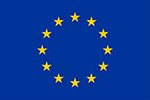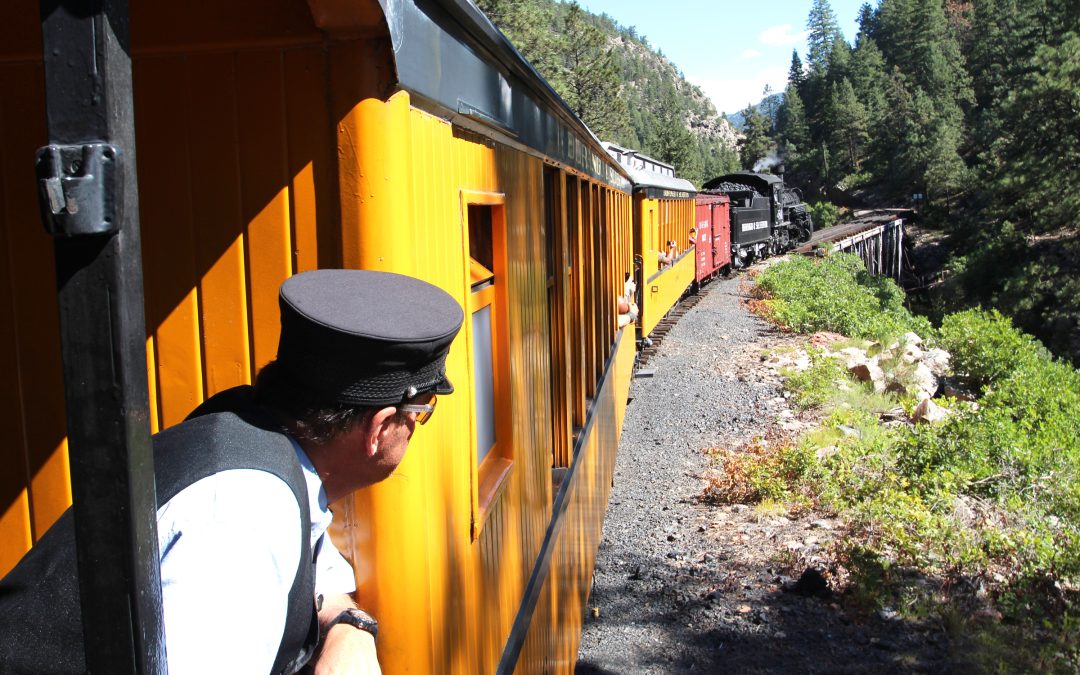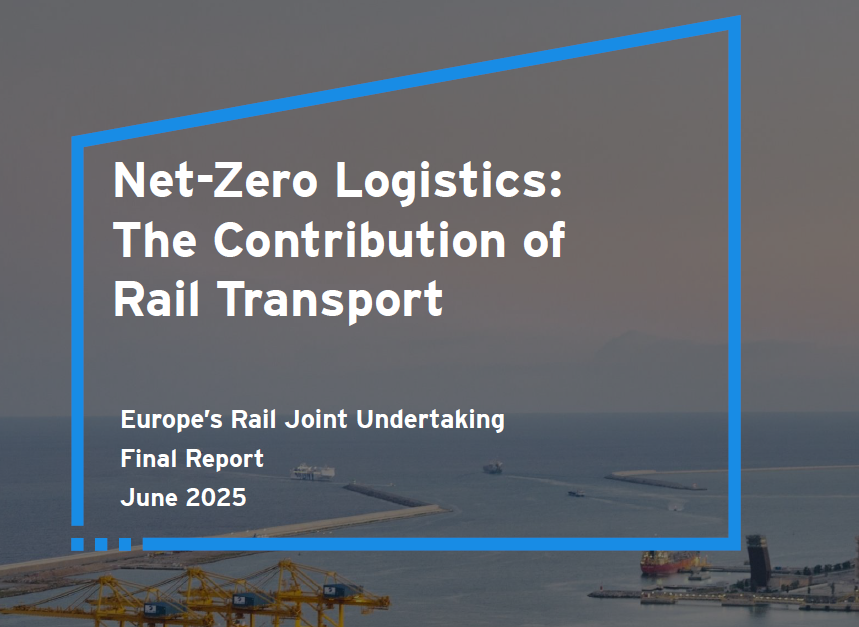Europe must take decisive steps to simplify and modernise its rail systems to strengthen competitiveness,...
On June 9th and 10th, representatives of the trade unions vida (Austria), EVG (Germany) and SEV (Switzerland), sent by the European Transport Workers’ Federation (ETF), visited the test site in Görlitz (GE), where the functionalities of various digital automatic coupling (DAC) prototypes are being examined. The aim was to gather experiences and evaluations from railway workers – shunting staff, train drivers and wagon masters – whose daily work will be significantly facilitated thanks to the new digital automatic coupler.
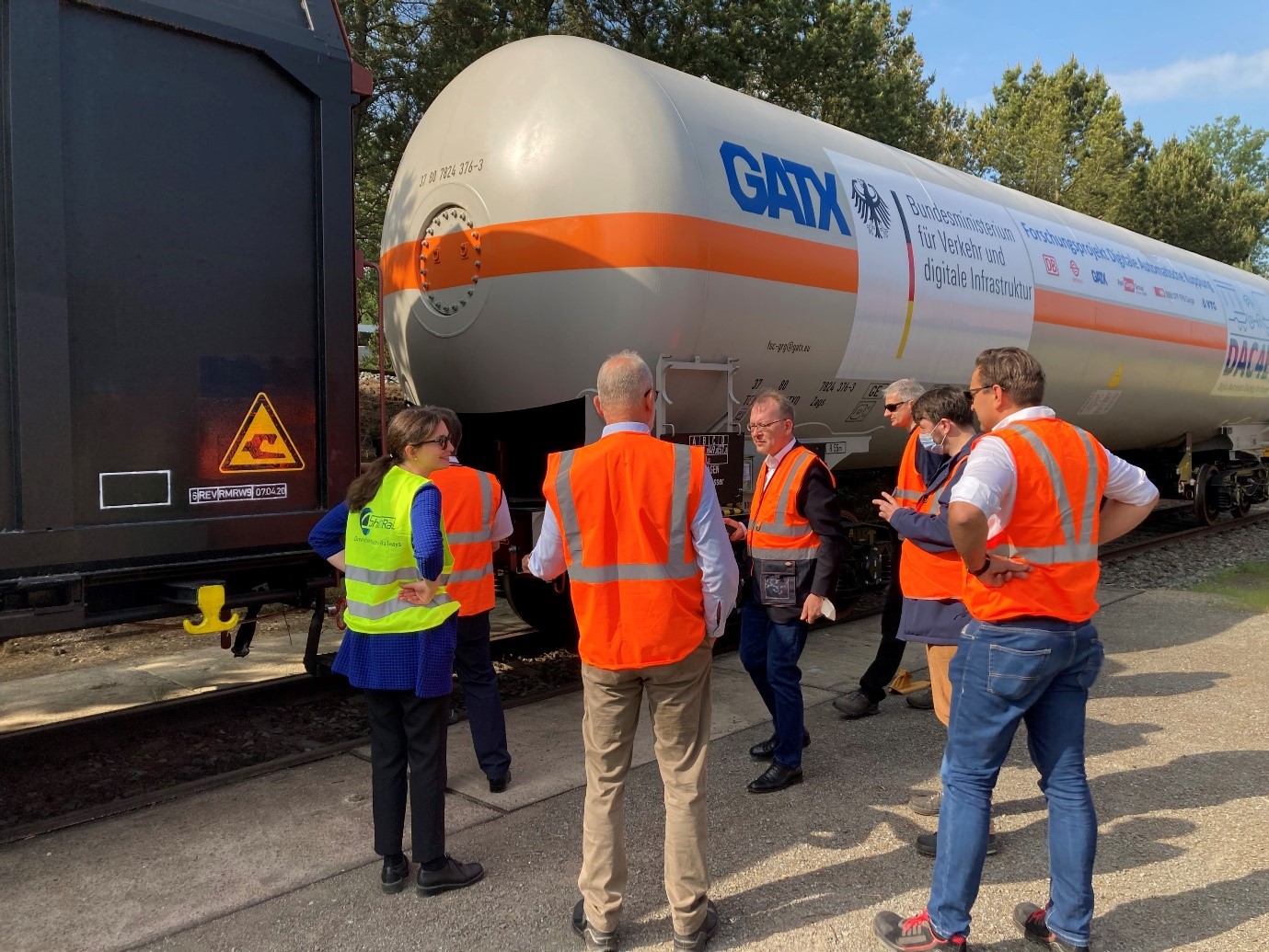
Marco Hörtenhuber-Stuhl, representative of vida, member of ETF, was pleased that a high level of functionality has already been achieved in the technical development of the individual coupling designs. From today’s perspective, the framework conditions have never been as good as they are today to actually be able to implement the digital automatic coupler on a broad European level. However, great effort is still required from all those involved, with each party needing to be considered, not least the implementation of the demands of the trade unions, in order to make the coupling a safe work tool of the future.
The following day, the test site was visited by the European DAC Delivery Programme (EDDP) management, represented by Jens Engelmann (railiable) and other international programme participants such as DB, SNCF, ÖBB and UIC – invited by DAC4EU. The European DAC Delivery Programme enabled by Shift2Rail offers a unique European platform for such collaboration and cooperation. The tests of the various DAC prototypes carried out at the TÜV Süd facilities were inspected. These tests are about to be completed and will provide the basis for a design decision in the coming months.
Jens Engelmann, EDDP Co-Programme Manager, was extremely impressed by the professional and extensive tests of the DAC prototypes, which form the basis for the decision planned for 2021. He thanked the European consortium DAC4EU, especially the committed experts on site who test the DAC prototypes on functionality and reliability in the context of a detailed test programme. They are making a decisive contribution to establishing the prerequisites for the automation and digitisation of rail freight transport across Europe.
Mark Topal-Gökceli, EDDP Programme Manager & CTO of ÖBB, commented after these eventful days on the particular added value of the EDDP’s integrative program structure, which is gaining in effectiveness through further stakeholders. With this in mind, he looks forward to constructive cooperation with representatives of the trade unions, especially regarding the new member of the EDDP Supervisory Board – Mr Alexander Lovell (EVG, Germany) nominated by the ETF.
Tests provide the basis for decision-making
The test program for digital automatic coupling (DAC) in rail freight transport was started in October 2020. Four prototypes from Dellner, Voith, CAF and Wabtec / Faively are subjected to 440 individual tests in a tightly timed schedule, with the technical requirements being tested in various test scenarios. Once the tests are completed, the results will be an integral part of the decision as to which DAC type to choose for roll-out in Europe. The tests should finally be completed by the end of June and a decision should be made at European level within the framework of the DAC Delivery Programme (EDDP) enabled by Shift2Rail. In order to gain more experience in operations with the preferred coupling, a so-called demonstrator train will then drive through Europe. By 2030, trains across Europe are to be equipped with the new technology and contribute to increased attractiveness and productivity of rail freight transport across Europe.
The revolution in rail freight transport
Digital automatic coupling (DAC) is a milestone in making rail freight transport in Europe more competitive: It not only ensures that coupling is easier and safer, but also more efficient. Europe is the last continent that does not yet use an automatic coupling system. However, it should be the first continent with a digital automatic coupling system. What is special about DAC is that the coupling process is carried out automatically. In addition, for the first time, DAC is the precondition for a continual electricity supply and consistent data connection throughout the train. This will enable the wagons to communicate with each other and with the locomotive in the future, thus creating the prerequisites for the automation and digitisation of rail freight transport throughout Europe.
The European DAC Delivery Programme (EDDP)
The European DAC Delivery Programme (EDDP), enabled by Shift2Rail, is a unique platform dedicated to the successful implementation of Digital Automatic Coupling (DAC) as a means to revolutionise rail freight systems in Europe. Founded on an open cooperation concept, the project gathers a wide range of entities from railway undertakings, infrastructure managers and wagon keepers, as well as the rail supply industry, entities in charge of maintenance, concerned sector organisations, rail research centres and national and European political institutions. The aim is to deliver a European DAC solution through an integrated shared programme, building upon R&I results and pilots, and ensuring the necessary actions for a fast, technically and economically feasible European‐wide roll‐out.
More information at www.shift2rail.org/european-dac-delivery-programme.
The European consortium DAC4EU
The consortium DAC4EU, consisting of the consortium leaders DB AG, ÖBB Rail Cargo Group, DB Cargo and SBB Cargo as well as the wagon keepers Ermewa, GATX Rail Europe and VTG, is testing several prototypes on behalf of the German Federal Ministry of Transport and Digital Infrastructure (BMVI) of digital automatic coupling types from various manufacturers. The test results of the consortium are to feed into the selection decision to be made by the European DAC Delivery Programme (EDDP) for a uniform coupling type in Europe. The consortium started its work in June 2020. The BMVI is financing the project with around 13 million euros over the project duration of two and a half years.
More information at www.dac4.eu
